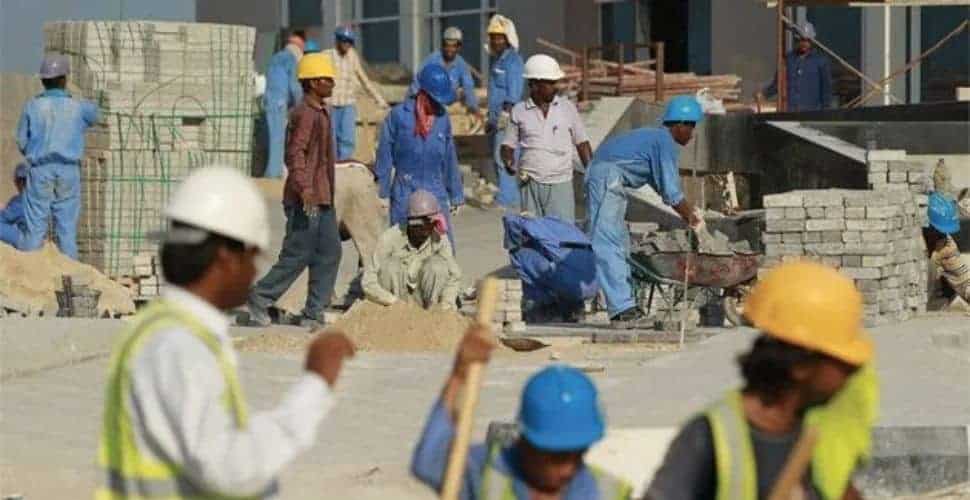Bangladeshi migrants still paying off debts from working in Qatar

Bangladeshi migrant workers are reporting returning to their home countries saddled with debt after paying high recruitment fees to work in Qatar. These costs include paying for international travel, passports, visas, medical fees and other charges.
Contracts cut short
In order to break even, a Bangladeshi 2020 Cost of Migration Survey found that male workers need to be earning money in Qatar for at least 18 months. Reports of companies cutting workers' contracts short and failing to pay wages and end-of-service benefits means that many have left Qatar with debt, leaving them vulnerable to debt bondage and exploitation from money-lenders.
Suman Mia is one worker who travelled to Qatar from Bangladesh in the hopes of finding work and earning enough money to support himself and his family. However after seven months in Qatar working in construction on World Cup projects, he was forced to return home.
“I was fired from the job four months before the end of my contract,” he said. “I faced my worst period. A huge debt burden was hanging over my head.”
Saddled with debt
Mia borrowed 300,000 Bangladeshi takas ($3,000) at a high interest rate. By the time he returned home, he owed his creditors half a million takas ($5,000). Just like Mia are hundreds of other workers. Mia shared that many workers were laid off in 2018 due to their company wanting to cut back on costs.
Qatar's labor laws prohibit the charging of recruitment fees for migrant workers and contractors are instructed to ensure migrant workers haven't paid fees. They are also instructed to return any fees collected. However, a 2021 audit exposed that workers from all nationalities were paying $1,333 on average in recruitment charges.
Qatar and FIFA can do more
Illegal recruitment fees are one of the key drivers of exploitation. Because workers are already entering into jobs saddled with debt, they may be unable to send remittances to their families or even support themselves. Unscrupulous employers can then exploit workers' desperation by failing to pay wages on time, forcing them to work in poor conditions and offering squalid housing.
Freedom United is urgently calling on Qatar and FIFA to step up for migrant workers by setting up a compensation fund for those who have faced exploitation and for the families of those who have died. As the World Cup gets underway, let's keep up the pressure.
This “Eyes on Trafficking” story is reprinted from its original online location.
 ABOUT PBJ LEARNING
ABOUT PBJ LEARNING
PBJ Learning is a leading provider of online human trafficking training, focusing on awareness and prevention education. Their interactive Human Trafficking Essentials online course is used worldwide to educate professionals and individuals how to recognize human trafficking and how to respond to potential victims. Learn on any web browser (even your mobile phone) at any time.
More stories like this can be found in your PBJ Learning Knowledge Vault.
EYES ON TRAFFICKING
This “Eyes on Trafficking” story is reprinted from its original online location.
ABOUT PBJ LEARNING
PBJ Learning is a leading provider of online human trafficking training, focusing on awareness and prevention education. Their interactive Human Trafficking Essentials online course is used worldwide to educate professionals and individuals how to recognize human trafficking and how to respond to potential victims. Learn on any web browser (even your mobile phone) at any time.
More stories like this can be found in your PBJ Learning Knowledge Vault.
